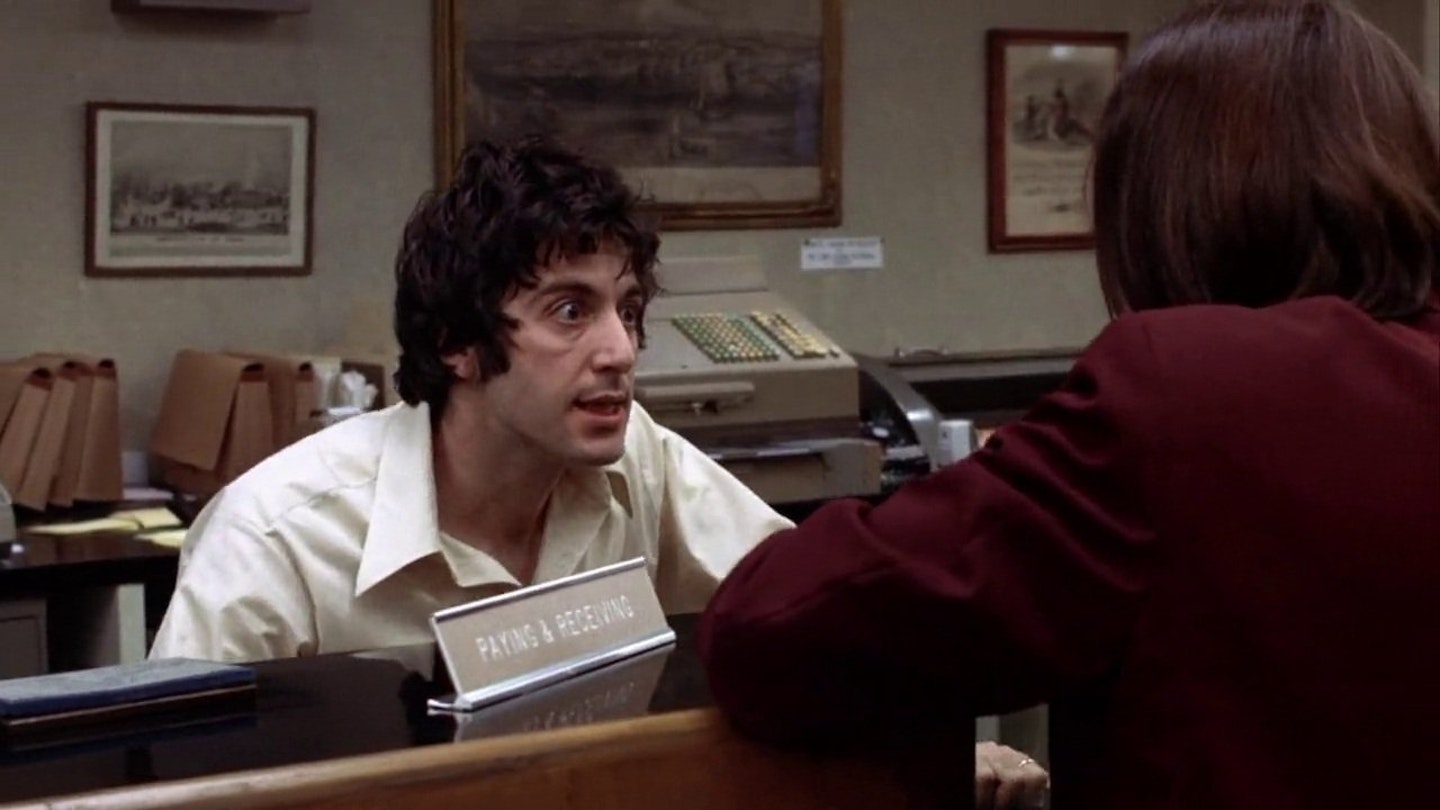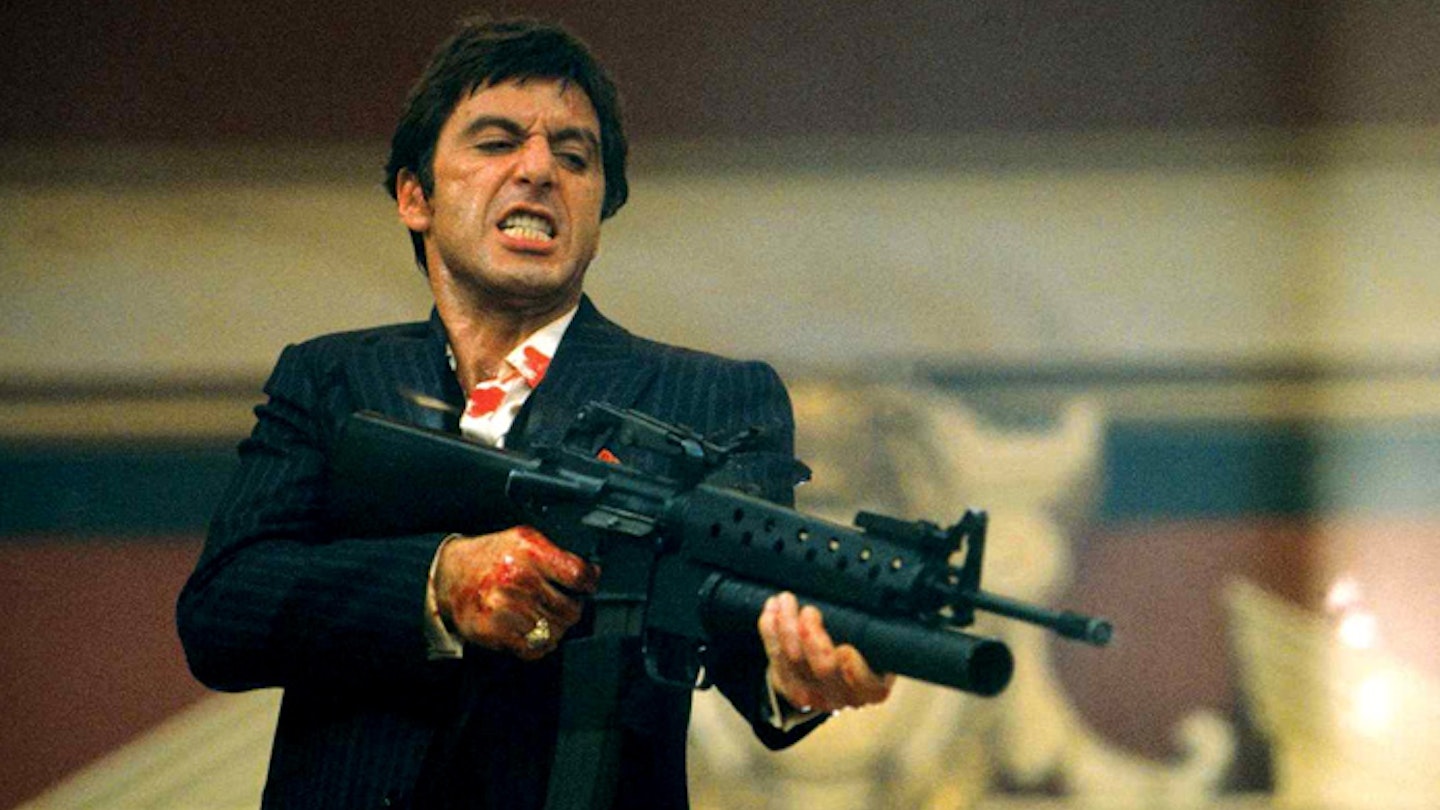In The Dorchester Hotel in London, sometime in January 1974, Al Pacino told director Sidney Lumet and screenwriter Frank Pierson (Cool Hand Luke) that he categorically would not play the part of Sonny Wortzik in Dog Day Afternoon. It was not the news they had wanted to hear. Not only had they flown over just for this meeting, the part had been written with Pacino in mind. But he was adamant. He had just finished shooting The Godfather Part II, which had left him, in his own words, "Exhausted and infinitely depressed" and just didn't fancy taking on a role that would, given his famous dedication to The Method, have him working himself up to a state of near hysterical anxiety on a daily basis. Apologies were made, hands were shaken and Lumet dispatched the script to Dustin Hoffman. But when Pacino heard that his rival in the diminutive acting genius stakes was showing interest he did an about face and demanded another shufti. The result was not only the granddaddy of all heist-gone-wrong films, but one of his finest performances in the decade he, De Niro and the crime movie made their own.
There was something about the 70s that threw up not only consistently great movies of all kinds, but crime movies in particular — and all sub-genres were covered. There was the grand opera of The Godfather films, noirish gumshoe action with Chinatown, political chicanery with All The President's Men. In most crime genres the 70s delivered the "best of" category. And that includes the heist-gone wrong-movie. It's been a staple of crime cinema since The Asphalt Jungle in 1950 and Rififi in 1955. Recent efforts such as Reservoir Dogs and The Usual Suspects show that it remains an audience pleaser as, when well-written and directed, it grants the audience permission to enjoy criminal shenanigans, and to identify with the perpetrators, without condoning them. Then there's the natural human delight in seeing things unravel disastrously. And in terms of plans assuming the appearance of a pear it would be difficult to beat what happened at the First Brooklyn Savings Bank on August 22nd, 1972.
Lumet and Pierson's recreation of Sonny Wortzick's botched attempt to steal thousands of dollars to fund his boyfriend's sex-change operation moves deftly from farce to tragedy with things going catastrophically wrong from the start. There's the third member of the gang who bottles out within minutes of the robbery kicking off and inquires whether he can use the getaway car to go home, the sarcastic bank teller (played brilliantly by Penelope Allan, "Did you ever have a plan or what? I mean, did you just barge in on a whim?" she asks witheringly at one point) and there are hungry husbands waiting for dinner phoning the bank to ask when Sonny "thinks he'll be done by". It's a brilliantly handled crescendo into chaos with Lumet, a past master of directing claustrophobic movies (Fail Safe, Twelve Angry Men), builds the sense of oppressive heat, tension and ultimately surreal action as various pressure groups arrive outside to cheer or decry the bisexual bank robber in front of the impotent NYPD.
And here's where Dog Day becomes more than just another heist movie. It's a gripping picture of a city close to meltdown. From Lumet's dazzling opening montage in which we see scenes of a city about to boil over in more ways than one, sweltering 70s New York becomes a raucous character in the movie. 1972's cultural melee is perfectly invoked as the heist transforms into a counter-cultural jamboree with a botched bank robbery as its central piece of performance art. Only, as they say, in the 70s.
Apart from the opening titles, Lumet uses no music, adding to the realistic, documentary feel while his camera in the opening minutes of the heist hurtles round his confined set before slowly settling down as Sonny and Sal hunker down for the long haul. It's a triumph of controlled direction and fantastic editing (by Dede Allen, whose Oscar-winning scalpel work includes Bonnie And Clyde, The Hustler and, weirdly enough, The Breakfast Club).
The film is also filled with outstanding performances from Pacino, Cazale (cast at Pacino's insistence, the part was originally written for a 14 year-old boy, as Sal was in real life) and Charles Durning as the harassed police chief trying not only to prevent a bloodbath inside the bank but also to control his own trigger-happy cops. Chris Sarandon delivers an effective turn as wannabe woman Leon and the film's handling of gay issues, though it looks dated today, is remarkably advanced for the mid-70s — though Pacino baJJced at a kiss outside the bank and the scene was re-written as an amazingly effective telephone conversation. And while in the tradition of the heist movie, crime doesn't pay — Sonny was sent down for 20 years — signing movie waivers obviously does. In 1973 Warner Brothers paid him $7,500, the exact price of a sex-change operation. Leon is now Liz Eden, and lives in New York.


